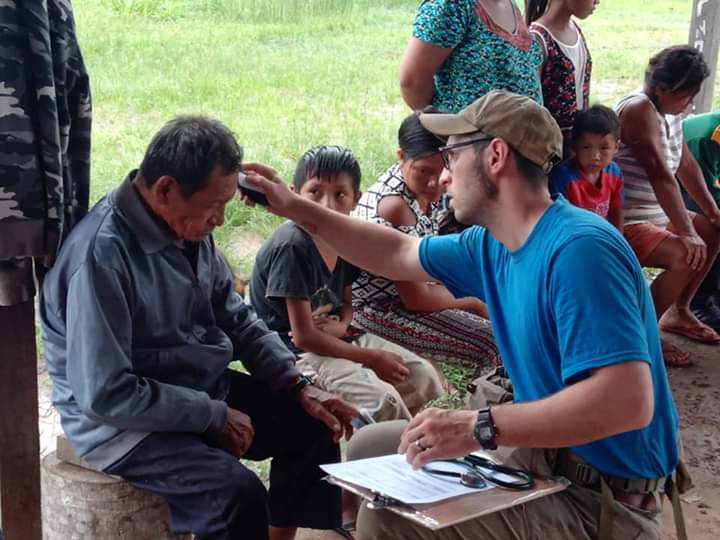
Part 1, Medical Nomads
Travel Journal, 54
Monday—Arrived 1715 at Santa Alicia. Long climb to village. Set up tents and ate supper. Held service. Early clinic in the morning.
A dozen or so stilted, open-air houses sat at the top of the tall, muddy hill. Their thatched roofs jutting out on all sides. After 10 hours (more?) on our boat, the village was a welcome sight. Even after climbing the monstrosity of a hill leading to the village half a dozen times, I was glad to be off the boat. I can only sit for so long. Our 80’ long stretched-limo-like canoe moved quickly that day, cutting up the Las Piedras river like the ever-present mosquito. Our team carried boxes and totes and crates full of camping gear, medical supplies, and food to last us the week. Soon, this tribe of American medical nomads set up tents. Our home for the next week would be a movable clinic along this muddy river in the south of Peru.
Little kids ran about in their bare feet and all smiles. Kind-hearted nationals helped with the totes of supplies. Local women-folk talked of a breakfast for us the next day. To say that our arrival was a big deal would be an understatement. For many, this mobile clinic is the only chance for medical care. The nearest hospital lies more than 10 hours by boat in Puerto Maldonado. And some may never go there. Poor medical care, terrifically hard labor, appalling nutrition, and rampant disease and parasites contribute to a discouraging quality of life, and a short one at that.
We slept comfortably in our tents that night.
The next morning, our team popped open plastic yard-sale tables. Then we lined up boxes of Amoxicillin, Mebendazole, anti-diarrheal, paracetamol, bag after bag of vitamins, and dozens more medications. And even though some may not currently have pain, discomfort, illness, or injury, they may still want medication. For most of these people, this is their only chance to treat any ailments they may have, now or later.
Before the clinic starts, the women of the village bring us breakfast of rice and chicken soup. A bowl of boiled plantain makes its way around the table. And, after final preparations and trips down to the boat to retrieve forgotten items, we pass the word around Santa Lisia that the clinic is open.
Some came quietly, some eagerly, some came dragging screaming children, but all came. That clinic was better attended than any midwestern yard-sale. But instead of used flatware and old Christmas ornaments, our tables were filled with medication. And our hands filled with care.
This was the first clinic of many.
anthony forrest
Related Tales:
0 Comments
1 Pingback